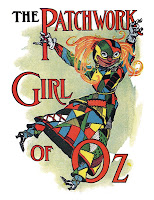 I have a friend who is extremely Presbyterian. I have another friend who is extremely Objectivist. I am sort of jealous of them. A while back I wrote a post about being a third-culture-kid and the impact that had on my views of culture in general. On that post Ben reflected on my take-what-I-like-and-leave-what-I-don't-like approach to culture and applied it to denominationalism and the search for a tradition. I am going to expand it a bit further and take a look at my approach to ism-ism (if I may coin the term) in general.
I have a friend who is extremely Presbyterian. I have another friend who is extremely Objectivist. I am sort of jealous of them. A while back I wrote a post about being a third-culture-kid and the impact that had on my views of culture in general. On that post Ben reflected on my take-what-I-like-and-leave-what-I-don't-like approach to culture and applied it to denominationalism and the search for a tradition. I am going to expand it a bit further and take a look at my approach to ism-ism (if I may coin the term) in general.Ben pointed out that it can be uncomfortable to not have a tradition with which to identify and I found myself sympathizing with him. First, because it is nearly always more comfortable to say "well what we believe is..." than to say "I believe...". There is strength in numbers, and that is not a bad thing, we are communal beings and it is natural and I think very proper to try and find our place in a greater family. Also it always feels a little arrogant to say "I believe this and I'm not really sure whether anyone else ever has". One seems to be saying "Nobody in the history of the world has been able to figure all of this stuff out until me; but now I understand".
So I think that there are some very good reasons to want to find a tradition (philosophical or theological) to fit into.
 But I don't. I do have several terms or isms I will apply to myself but I tend to find that when I use them I have to do it with a lot of caveats: "I'm a capitalist, but I don't think that selfishness is a virtue or that it is better for rich people to get money than poor people, or that capitalism will necessarily make anyone happy" or "I'm think of myself as something of a Platonist but here are bunch of things I think Plato was wrong about" or "I'm basically a protestant but I'm not really sold on the protestant understanding of sola scriptura and I think that the Orthodox have a better understanding of the Eucharist than protestants, and I'm really very confused about what the Church is in a metaphysical sense but I kind of think that the Catholics have a better understanding of it than any protestant does". You see the problem? I can usually identify with some central premise or teaching of one ism or other but I haven't found one yet that I can swallow whole (with the possible exception of Mere Christianity as Lewis defines it - whether you are christian, atheist or other I bet you will be shocked if you go back through that book and look at how basic Lewis' definition is).
But I don't. I do have several terms or isms I will apply to myself but I tend to find that when I use them I have to do it with a lot of caveats: "I'm a capitalist, but I don't think that selfishness is a virtue or that it is better for rich people to get money than poor people, or that capitalism will necessarily make anyone happy" or "I'm think of myself as something of a Platonist but here are bunch of things I think Plato was wrong about" or "I'm basically a protestant but I'm not really sold on the protestant understanding of sola scriptura and I think that the Orthodox have a better understanding of the Eucharist than protestants, and I'm really very confused about what the Church is in a metaphysical sense but I kind of think that the Catholics have a better understanding of it than any protestant does". You see the problem? I can usually identify with some central premise or teaching of one ism or other but I haven't found one yet that I can swallow whole (with the possible exception of Mere Christianity as Lewis defines it - whether you are christian, atheist or other I bet you will be shocked if you go back through that book and look at how basic Lewis' definition is).And yet at the same time I don't pick and choose by fancy; at least I sincerely hope that I don't. I put a pretty high value on the law of non-contradiction and for as long as I have been trying to construct/discover/receive a complete worldview, I have insisted that no one part of it necessarily contradict any other part. Those of you who know me will know better than I whether I have been successful but I have always at least tried to reconcile any contradictions I saw in my own worldview and to reject one conclusion or the other when the reconciliation failed. Contradiction gives me a stomach ache.
You begin to see? I am not complaining, as a general rule, I love the process. It's just that I might have
hoped by now to have found some tradition which contains or at least allows for everything I believe to be true and nothing that "clashes" with it. But I haven't.
 And I am beginning to be alright with that. I have said in the past that I believe that everything I believe is true. Not because I am arrogant (I probably am but it has nothing to do with this particular conviction) but because my answer to "What do you believe that isn't true?" has to be "Nothing, if I thought that something I believed was a lie then I wouldn't believe it would I". I understand the White Queen "believed as many as six impossible things before breakfast" but I have only been able to believe impossible things by accident.
And I am beginning to be alright with that. I have said in the past that I believe that everything I believe is true. Not because I am arrogant (I probably am but it has nothing to do with this particular conviction) but because my answer to "What do you believe that isn't true?" has to be "Nothing, if I thought that something I believed was a lie then I wouldn't believe it would I". I understand the White Queen "believed as many as six impossible things before breakfast" but I have only been able to believe impossible things by accident. As a result I have found that I am pretty much stuck where I am. I zip through political theories, philosophies, theologies, religions and I grab gems of truth where I see them and throw out falsehoods when I become aware of them. After all, Jesus claims to be the Truth, and I believe Him. So maybe my sifting process is a good one; maybe I am slowing cleaning the glass through which I view Him; maybe my frenetic truth sorting is really just a series of course corrections towards the center. Maybe your's are too; maybe as you seek the truth at all costs and no matter where you find it, maybe you are getting closer to Jesus. He did say that He is near to those who seek Him.
As a result I have found that I am pretty much stuck where I am. I zip through political theories, philosophies, theologies, religions and I grab gems of truth where I see them and throw out falsehoods when I become aware of them. After all, Jesus claims to be the Truth, and I believe Him. So maybe my sifting process is a good one; maybe I am slowing cleaning the glass through which I view Him; maybe my frenetic truth sorting is really just a series of course corrections towards the center. Maybe your's are too; maybe as you seek the truth at all costs and no matter where you find it, maybe you are getting closer to Jesus. He did say that He is near to those who seek Him.In the meantime I will try to find community with anyone who will have me. Maybe this is why I care so much about reviving the ability to disagree without vitriol. After all, we are all sure to be wrong about a whole lot of things, even if we don't know which things they are.














